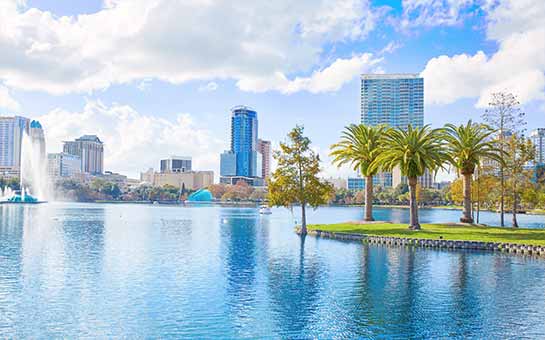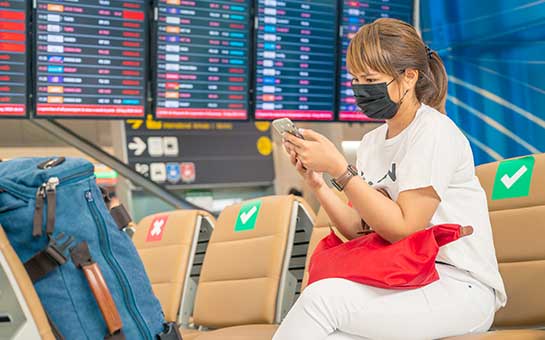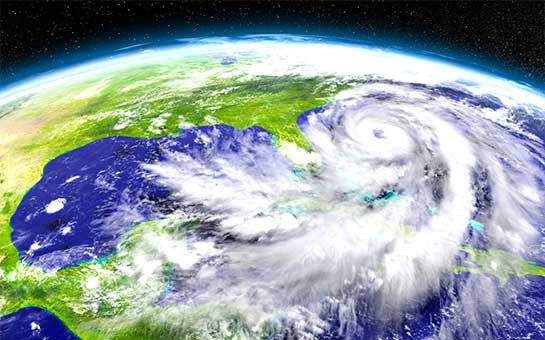Florida is a peninsula state with over 1,300 miles (2,000 km) of coastline. The Atlantic Ocean is on one side, and the Gulf of Mexico is on the other. Tourists worldwide take Florida vacations, as the state offers activities inland, on the coast, and in the sea. Tourists visiting Florida can choose from theme parks, museums, snorkeling, surfing, parasailing, sailing, hiking trails, wildlife watching, sand sculptures and so much more.
With so many choices, everyone will surely enjoy their visit. We encourage you to have a great time, but remind you that it is always advisable to purchase Florida visitors medical insurance or travel insurance to keep yourself and your family protected.
Visitors Medical Insurance for Travelers in Florida – FAQs
Visitors medical insurance is short-term insurance designed to provide financial coverage for new illnesses and injuries sustained by non-US residents visiting the United States. As you can get sick or hurt at any time, this insurance is essential for every US visitor to have.
Do I need visitors medical insurance for Florida?
From a practical perspective, absolutely. The USA has the highest healthcare costs in the world, and you may not be able to afford treatment without it. However, visitors medical insurance is not legally required for tourists. Just keep in mind that if you do not have it, you will be responsible for paying any and all medical costs out of your own pocket. For major surgeries, this can be hundreds of thousands of dollars.
Why buy visitors medical insurance before traveling to Florida?
You can’t plan when you will get sick or hurt, and your domestic health insurance will not provide coverage while visiting the USA from another country. Medical care in the US is quite simply unaffordable for most people without insurance coverage, and visitors medical insurance is the only viable insurance option for you as a tourist visiting the USA.
Trip Cancellation Insurance for Travelers in Florida – FAQs
Trip cancellation insurance focuses on helping you recoup costs if you have to cancel your trip to Florida for an unexpected reason. It gives you the opportunity to be reimbursed for nonrefundable expenses such as airfare, theme park tickets, and hotels. Without it, you may be stuck paying for a trip that you cannot take.
Why should I get trip cancellation insurance for my Florida travel?
The largest prepaid expenses of most trips – airline tickets, hotel or resort bookings, theme park and attraction tickets – are usually nonrefundable, or charge cancellation fees. You need a way to protect yourself if you get sick, have a family emergency, a or a natural disaster or some other calamity forces you to cancel your travel plans.
Trip cancellation insurance can provide this protection. With it, you can be reimbursed for the nonrefundable portion of your prepaid travel expenses, so long as you cancelled your trip for a reason that’s covered by the travel insurance policy you’ve purchased.
What can be covered by trip cancellation insurance for Florida?
As we’ve seen, trip cancellation coverage is an important component of travel insurance; but it’s not the only coverage you can receive. With a Florida travel insurance plan, you can get coverage for things like travel delays, trip interruption, emergency medical treatment, and even lost baggage.
The exact scope and amount of coverage will depend upon the travel insurance policy you choose. Take some time to compare several plans right here on this website to determine which one is the best fit for your trip.
Florida’s Most Popular Places for Travel
With abundant sunshine and attractions-galore, Florida is a paradise for tourists. Depending upon your interests, we’d recommend you check out the following places during your trip.
Beautiful Beaches
Florida has many famous beaches that you can visit. Some of the more popular family-friendly beaches along the Gulf of Mexico are Clearwater Beach, Panama City Beach, Pensacola Beach and Siesta Key Beach. Along the Atlantic Ocean is Daytona Beach, Delray Beach, St. Augustine Beach and plenty more. You can find powdery white sands, gray and black sands, and golden-brown sands at the many Florida beaches. Whichever beach you visit, you will be likely to find beautiful clear waters in various tones of blue.
The Florida Keys
The Florida Keys are another frequented destination for visitors. The Keys are a string of tropical islands that extend out about 120 miles from the southern tip of Florida. They are world-famous for fishing, boating, snorkeling, and diving. The Key West area is also famous for Duval Street, which showcases many bar establishments, as well as the home of one of America's most famous authors, Ernest Hemingway. Hemingway's home is located across from the Key West Lighthouse, and in 1968, was designated a U.S. National Historical Landmark. Tours of the house and the accompanying museum are offered.
The Theme Parks of Orlando
The Orlando area is a must-stop along your travels if you enjoy theme parks. Orlando is home to the number one theme park in the world - Disney World, along with Universal Studios, featuring The Wizarding World of Harry Potter, Busch Gardens - a Florida themed park, and Sea World, where you can experience marine life up close.
Cape Canaveral
If you are interested in space and astronomy, another great place to visit is NASA's John F. Kennedy Space Center in Cape Canaveral. Since 1968, this has been the primary launch center for human space flight. You will be able to take tours of the space center as well as the astronaut hall of fame. They even have a rocket garden, where you can walk among the actual rockets from some of the most famous space flights in history including the Gemini, Mercury, and Apollo space programs.
Regional Activities
Each region of Florida offers a wide variety of activities to choose from. For example, if you are around the Gulf coast side of the state near Pensacola and the barrier island of Santa Rosa, there is an eco-trail you can explore to spot light local wildlife like sea turtles, butterflies, and other flora and fauna.
Key Guidelines for Travelers in Florida
Every travel destination has its risks and things to look out for, and Florida is no exception. Keep an eye out for the following when planning and enjoying your Florida vacation:
Wild Weather
Although Florida is known as the Sunshine State, it can experience extreme weather at times. Florida is the lightning capital of the US, and thunderstorms can bubble up nearly any afternoon. And as a peninsula that extends into the Caribbean, Florida is at risk of direct hits from hurricanes and tropical storms. Keep the weather forecast in mind when planning your trip, and pay attention to local media while visiting to keep safe.
Crime and Safety
In crowded areas of Florida, pickpocketing and mugging can be a problem. It is better to leave nonessential items in your hotel safe during the day, and only bring the items you need while visiting attractions or sightseeing. Investing in a money belt to hold your cash or cards is suggested.
Getting Around
Outside of major cities, the easiest way to get around Florida is by renting a car. Larger cities do have public transportation available, but it can be crowded and unreliable. A better option for urban transportation is a licensed taxi or ride-sharing service. There are even water taxis for coastal transportation.
Safe Partying
Miami and Daytona Beach are world-renowned party destinations, but they require caution. Never accept a drink from a stranger at a bar unless you see the bartender pour it and hand it directly to you. Bad actors could spike the drink to rob or assault you. Also, do not leave your drink unattended under any circumstances.
Beach Advice
If you plan to spend the day at one of Florida’s beaches, be sure to apply sunscreen regularly, and bring along an umbrella or sun hat to protect your skin from harmful UV rays. Never swim from beaches that do not have lifeguards on duty, and keep an eye out for potentially harmful wildlife such as jellyfish.
Before You Travel to Florida – Do This
- Keep an eye on tropical weather forecasts – The Atlantic hurricane season runs from June through November. Understand the implications of traveling during hurricane season, and plan accordingly.
- Plan to rent a car if you’re exploring multiple cities – Florida is lacking public transportation options outside of major metropolitan areas.
- Research and purchase the appropriate insurance – Visitors medical insurance or travel insurance is essential protection for any trip to Florida.



